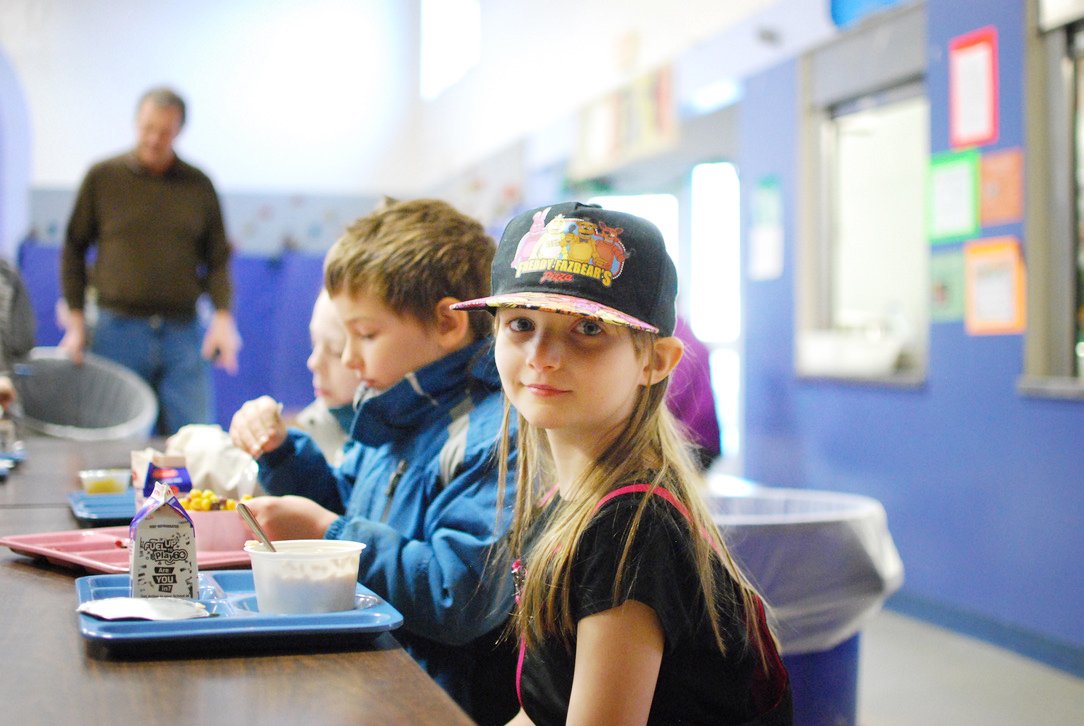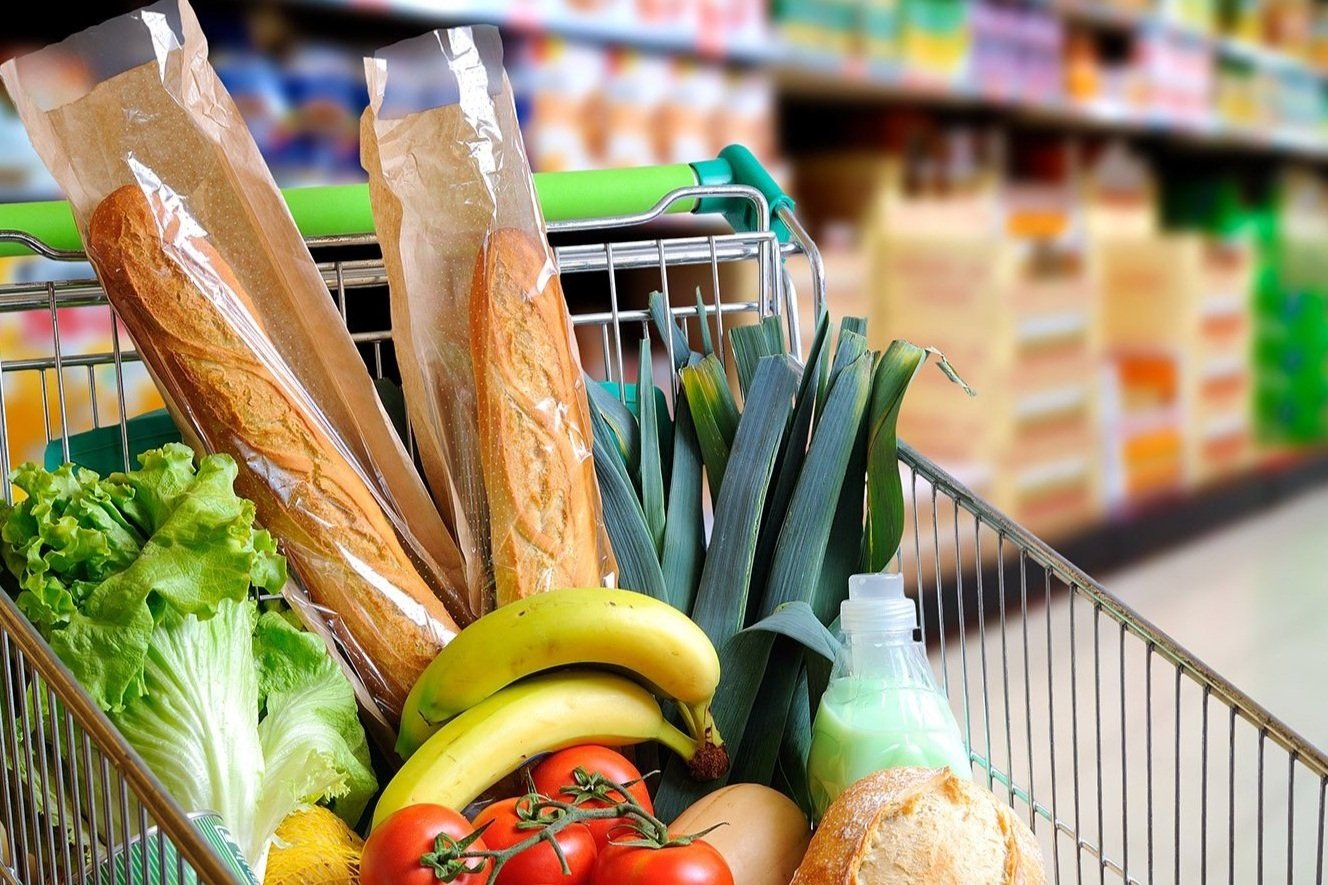How we can end hunger
We can end hunger through government action.
It’s been done before. In the late 1960s, Congress made huge investments in SNAP (the Supplemental Nutrition Assistance Program, then known as Food Stamps) and school meal programs. By 1970, severe hunger had been ended in the United States.
But by the early 1980s, government cuts to those same programs caused dramatic increases in hunger. Hunger Free Vermont was established in 1993, and we've been working since then to protect and expand nutrition programs, so everyone can get the food they need with dignity.
Hunger Free Vermont’s work moves us all towards a future where:
Everyone living in Vermont has a lifetime of food security and economic security.
Hunger Free Vermont protects and helps to expand federal nutrition programs like 3SquaresVT and meal programs for children and older adults. These programs are the most effective and dignified way to make sure we all have the food we need to thrive.
We tackle barriers to these programs at the local, state, regional, and federal levels. We do this by raising awareness about hunger in Vermont, and how we can all work together to create systemic change so everyone in Vermont has consistent and reliable access to food. This includes sharing information about hunger in Vermont with key decision-makers, so they have the information they need to make policies that will end hunger.
Hunger Free Vermont knows that we will never permanently end hunger until we transform the systems that hold hunger in place. That's why we advocate for policies that create both food security and economic security. Livable wages, racial justice, access to safe and affordable housing, vibrant local food systems, dignity in all programs supporting people in need, policies like paid family and medical leave and tax credits that benefit working people, and more will all work together to end hunger.
Nutritious meals are a part of every child’s school day.
We believe that no child should learn what hunger feels like in school or daycare, and every child should be able to eat nutritious and culturally appropriate meals. When school meal programs are universal and invest in Farm to School, kids, schools, and farmers win.
Hunger Free Vermont is working to end child hunger in two primary ways:
Working with the Vermont State Legislature and partners to establish permanent universal school meals at all schools in Vermont.
Working directly with schools, early childhood programs, and state agencies to make meal programs more effective.
While Hunger Free Vermont is advocating for transformational change by bringing Universal School Meals to every school in Vermont, we are also working on the ground in schools. We offer training to school administrators and food services professionals to help schools establish and improve school breakfast and lunch programs, implement universal school meals, and purchase more local food from Vermont farmers and producers.
Childhood hunger doesn’t stop at the end of the school day or school year. We also help schools and community groups understand how to run afterschool and summer meal programs, so children are well nourished through the entire year.
3SquaresVT and other federal nutrition programs are protected, available, and strengthened to give people a true “hand-up” out of poverty.
We improve access to and participation in 3SquaresVT, one of the most reliable, consistent, and dignified means to prevent hunger. It helps Vermonters buy the food that's right for them, and is an important benefit to our economy.
3SquaresVT is Vermont's name for SNAP (Supplemental Nutrition Assistance Program). It is a federal program and is run in our state by the Vermont Department for Children and Families Economic Services Division (DCF-ESD). Hunger Free Vermont works closely with DCF to improve access to 3SquaresVT and participation in the program. On average, 70,000 people in Vermont participate in 3SquaresVT, though we know many more are eligible.
Hunger Free Vermont brings together a statewide group of government administrators, representatives from Vermont's Congressional Delegation, and community partners. We also offer training sessions about 3SquaresVT for a wide range of audiences. This work deepens understanding of the program and helps to eliminate any stigma or misinformation. 3SquaresVT is here for all of us when we need it, and is a powerful way to support ourselves and our communities.
Older adults have stable, dignified ways to provide themselves with the nourishing food they need to stay healthy and independent.
People over 60 living in Vermont are an integral part of our state, and are growing as a share of our population. When older adults are well fed, they are better able to manage their health, maintain their independence, and age with dignity.
Programs like 3SquaresVT, the Commodity Supplemental Food Program, Meals on Wheels, and shared meal programs all support the nutrition of older adults. Hunger Free Vermont works with federal, state, and community partners to improve access to these programs and make them easier to implement.
Healthcare providers address hunger and malnutrition as health issues with their patients and help them connect to food resources.
Traditionally we have treated healthcare quality as the key driver of health and health outcomes. There is growing understanding that many social factors, beyond the healthcare that we receive, also contribute to our health. Access to the food we need is a key part of a healthy life, and can have short-term and long-term impacts on our health.
Since food and health are so closely tied, Hunger Free Vermont partners with healthcare systems across the state to:
Raise the importance of screening for food security with all patients.
Support the integration of food security screening and referrals into healthcare practices.
Create strong relationships between our medical providers and the community groups who can connect patients with the food they need.
We center the vision and knowledge of the communities in Vermont most impacted by hunger
Hunger Free Vermont knows that we will never fulfill our mission to end the injustice of hunger and malnutrition for all Vermonters while wide disparities in health and economic outcomes for oppressed peoples in our state continue. This is especially true for the Abenaki, on whose ancestral lands we live. As Abenaki Tribal leaders have publicly voiced, Abenaki citizens have the worst health outcomes in our state. Those outcomes are the result of long-term systemic racism and state-sanctioned oppression, which have created high levels of poverty, hunger, and malnutrition.
We have started to develop relationships with leaders of some of the state-recognized Abenaki tribes to explore with them the different ways we can support their efforts to increase the food security and food sovereignty of their citizens.
We focus on supporting the projects they feel will best nourish their citizens in their own ways by supporting efforts to secure funding and connecting them to other resources offered by our many state and local partners.
Vermont’s vibrant system of local food producers and farmers is easy to access and affordable for everyone.
We partner with the Vermont Farm to Plate network, the Vermont Farm to School and Early Childhood Network, co-ops throughout New England, and others to ensure that as we expand markets for Vermont farmers and food producers, we are also making local food equitable, affordable, welcoming, and just for all.
Hunger Free Vermont has consistently focused on making fresh, locally produced food available to all Vermont children. This was a key factor in the State Legislature's decision to quadruple funding for the state's grants that support farm-to-school programs. It also encouraged the Legislature to launch the program that helps schools buy more local food. We also provide training and resources to Farm to School organizations in Vermont to help them work with schools on expanding meal program access and participation.
Hunger Free Vermont also works with NOFA-VT to help farmers markets be more affordable and welcoming for everyone, including people shopping with 3SquaresVT and WIC. We believe local food should be available to—and affordable for—everyone living in Vermont.
Community leaders and members work together at the local level to make sure all of their neighbors have what they need to thrive.
Addressing hunger requires broad engagement and strong partnerships. Hunger Free Vermont is often the organization that brings groups and people together to take collective action on hunger and poverty. Our flagship community engagement program - the Hunger Councils of Vermont - has been bringing people and organizations across Vermont who care about hunger and want to take action together since 2006. Each of the 10 regional Hunger Councils is an important community forum and resource. The Hunger Councils have also influenced state and federal legislation, strengthened food access programs like summer meals, and supported rising leaders in their work to end hunger.
When we address hunger, we all benefit.
A hunger free Vermont is a stronger, more resilient Vermont. While our work most directly benefits the approximately 150,000 of us currently facing hunger in Vermont, we know that Hunger Free Vermont’s mission helps everyone in Vermont to thrive because our communities are strongest, and work best for us all, when everyone who lives here has what they need for health and well-being.









